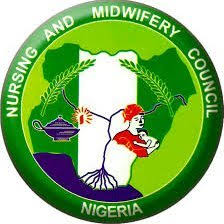Nigeria Centre for Disease Control (NCDC), yesterday, told The NAN: “There are currently no vaccines available in the country. But official requests have been made to the World Health Organisation (WHO) and the United States for available vaccines (second or third generation).”
It stated this in response to concerns that the ongoing monkeypox pandemic might become more fatal, as vaccines, treatments and tests are unavailable in much of the world, especially Africa and Nigeria.
A report published, last week, by The New York Times showed that African countries don’t have monkeypox vaccines, treatments and tests.
How true is this? Does it mean Nigeria does not yet have solution to monkeypox? The Director General, NCDC, Dr. Ifedayo Adetifa, answered: “The NCDC has testing and genomic sequencing capacity for monkeypox at our National Reference Laboratory (NRL), Abuja. Monkeypox diagnostic capacity is also being rolled out at Central Public Health Laboratory, Lagos, a campus of the NRL, as a first step to increasing access to testing, given a large number of cases in 2022.
“Monkeypox is a self-limiting disease, which has been primarily managed in Nigeria through supportive treatment; meaning the symptoms are treated in the patients. We have identified a few patient groups at very high risk for severe disease, hospitalisation and death. As a result, NCDC is looking into procuring the only medication licensed for monkeypox treatment, Tecovirimat (TPOXX), for high-risk groups (immunosuppressed patients).”
On implications of the absence of vaccines and treatment for monkeypox in Nigeria and indeed Africa, Adetifa said the current clade found in Nigeria is less virulent and self-limiting. Most people who get it recover, with symptoms lasting between two and three weeks.
He said NCDC’s priority is to procure a therapeutic option to offer those at high risk of severe symptoms, hospitalisation and death, given its local epidemiology and experience.
The public health physician said, with the world now more interconnected than ever, a drawn-out outbreak of monkeypox in Africa, without adequate medical countermeasures, will eventually have a ripple effect on global health.
On the way forward, Adetifa said sustained support in building capacity among African countries will help to achieve equitable availability of vaccines, biomedical innovation, and strengthen public health systems globally.
A professor of virology, educational administrator and former vice chancellor of Redeemer’s University, Oyewale Tomori, said the current global spread of monkeypox reminds Nigerians, once again, that infectious diseases know no borders, and responses should protect everyone, leaving no country behind. This also requires an equitable contribution from each country.
He said: “By applying resources responsibly, countries where these diseases are endemic can gradually move away from depending on the crumbs of equity for their disease control and response activities and contribute appropriately and effectively to national and global action needed to mitigate the effects of emerging infectious diseases.”
Meanwhile, the WHO Regional Office for Africa (AFRO) has convened a meeting of COVID-19 epidemiology focal points from ministries of health of selected high-risk countries in Brazzaville (Republic of the Congo).
The aim was to discuss initiatives aimed at improving the quality and effectiveness of COVID-19 surveillance, including genomic surveillance.
AFRO, in a statement, said: “Currently, 40 out of the 47 member-states (85 per cent) in the African region have in-country capabilities for genomic sequencing and 46 member-states (98 per cent) are sharing their genetic sequence data through a publicly accessible database.
“The region has established a coordinated mechanism to sustain and strengthen these gains and has set up three centres of excellence for genomic surveillance, developed standardised guidance documents, offered capacity building for ministries of health personnel, and set up laboratory infrastructure for routine pathogen genomic surveillance, including wastewater surveillance.”
Epidemiologist, Dr. Abubakar Jafiya, said: “Nigeria’s genomic sequencing capacities has been built across diverse public and private sector institutions, including the National Public Health Institute and academic and research centres, to help inform the response to COVID-19. Since the beginning of the pandemic, Nigeria has shared over 7,000 sequences on the Global Initiative on Sharing Avian Influenza Data (GISAID).
“The sequencing capability built during the COVID-19 pandemic presents an opportunity for us to strengthen pathogen genomic surveillance for other priority pathogens in the country. We are committed to strengthening coordination, human capacities and infrastructure for genomic surveillance.”




